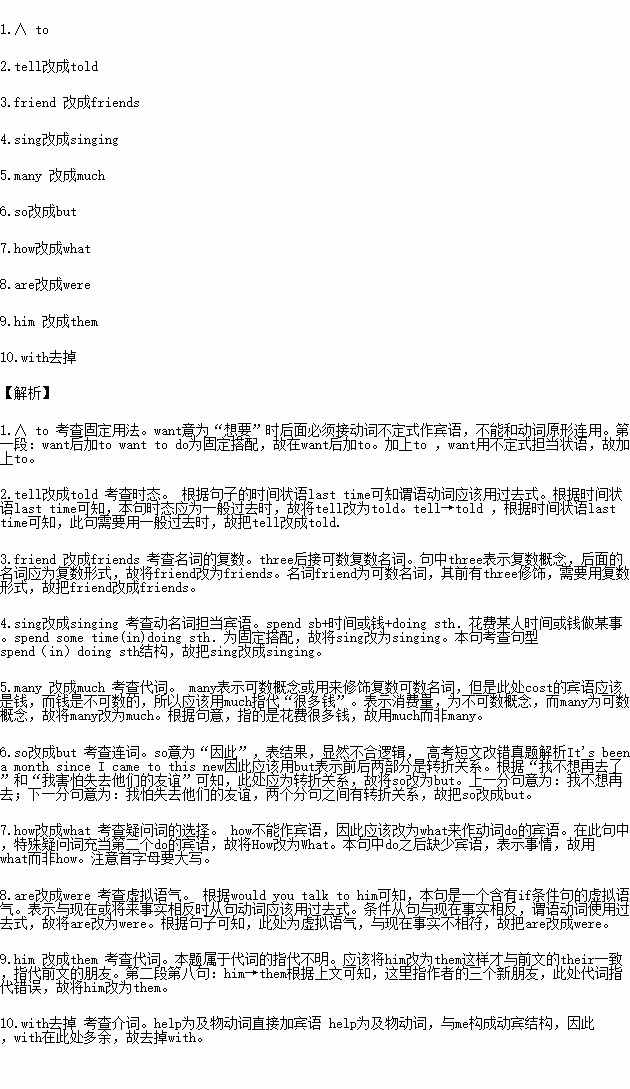题目内容
短文改错
Hi, Sarah,
It's been a month since I came to this new school and I really want share with you some of the problems I have been experiencing.
As I tell you last time, I made three new friend here. We hang out﹙玩耍﹚ together during lunch and after school. We've been spending a lot of time sing in karaoke bars. It's been three Saturdays now and it really costs me many money. And I started to see this as a time?wasting activity! In fact,I don't like to go anymore, so I'm afraid I'll lose their friendship. How do you think I should do? If you are me,would you talk to him?
Please help with me and give me some advice.
练习册系列答案
 天天向上一本好卷系列答案
天天向上一本好卷系列答案 小学生10分钟应用题系列答案
小学生10分钟应用题系列答案
相关题目

